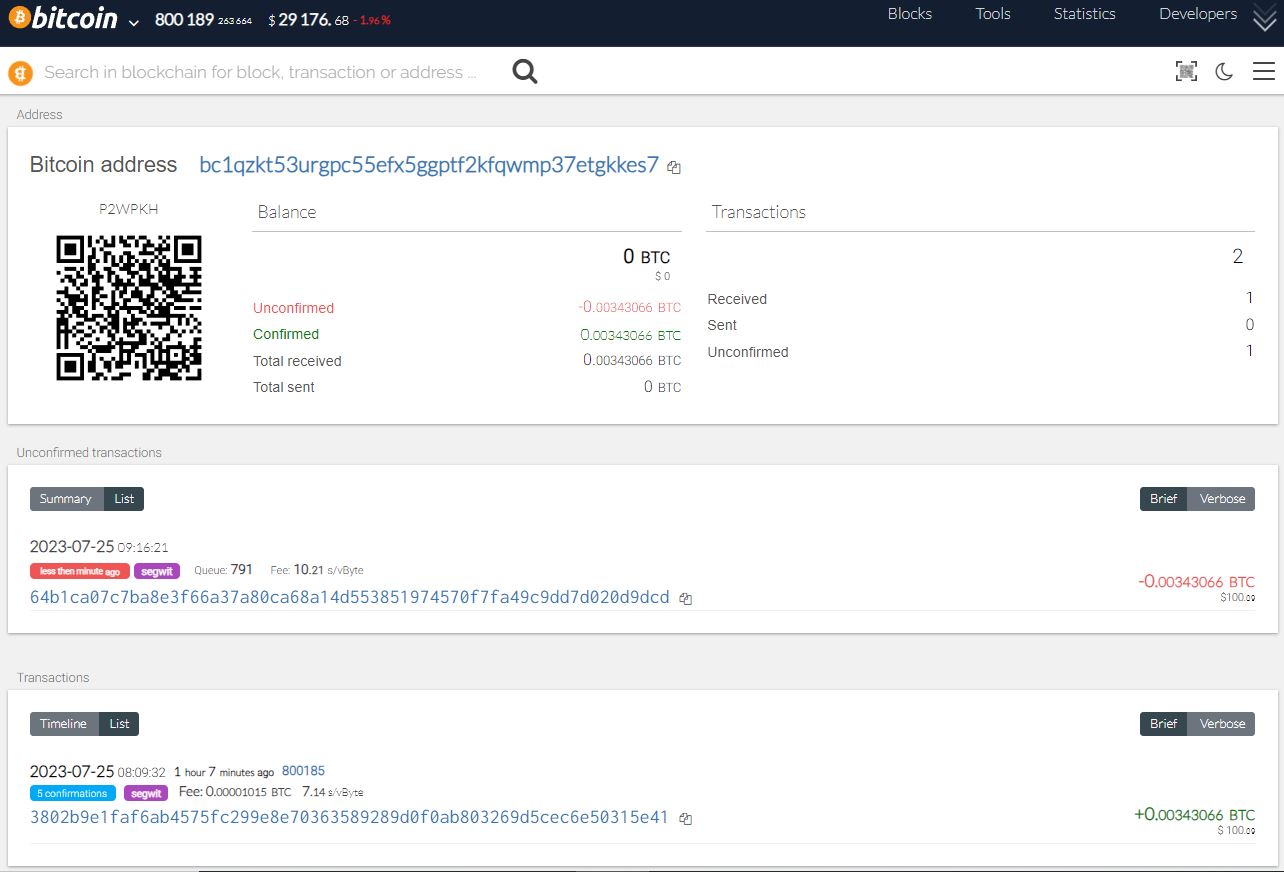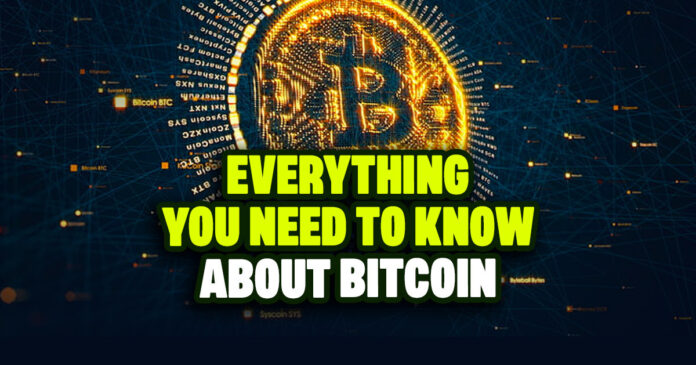In 2023, the pace of crypto’s advancement is blistering. Bitcoin, the granddaddy of crypto, isn’t lagging behind. With Ordinals, Inscriptions and many projects building atop Bitcoin, more value is being built into $BTC.
In this second part, we’ll be exploring more fun facts about Bitcoin. Facts that you should know about the crypto that started it all. In part one of this article series, we answered some queries about Bitcoin’s security, origin, and wallets. Today, we’ll dive deeper into Bitcoin’s security and privacy.
Are Bitcoin Transactions Traceable?
Well, the short answer is Yes. All transactions on the Bitcoin network are decentralized, transparent, and immutable.
In other words, transaction details are permanently stored in the Bitcoin blockchain. Available for all to see forever. So, the hogwash from the media about how Bitcoin is used for illegal activities isn’t all true. Why would a criminal use Bitcoin if everyone can see his transaction history publicly?
To trace a transaction, all you need is the address or Transaction ID (TXID). Next, head on over to an explorer-like Blockchair or Bitaps. Then, input the address or TXID into the search bar, hit enter, and voila! It displays the transaction history for anyone to verify.

Now, how does Bitcoin maintain such a complete record of all transactions? That’s because it leverages a network of nodes. Each node will store its copy of the network’s entire history. Then, every node uses its history to validate new blocks. In turn, every node will have the most updated copy of the network’s history. This means the Bitcoin ledger is highly accurate and verifiable.
Are Bitcoin Miners Profitable?
Before we answer the above question, let’s re-cap what mining in Bitcoin means. In the previous section, we learned that nodes validate new blocks. But, where do these new blocks come from? Well, you guessed it! From miners. In the Bitcoin network, miners create the blocks by performing the required work. Once a new block is created, miners receive a reward of 6.25 BTC for now. Since the next Bitcoin halving, the block reward will fall to 3.125 BTC.
So, as a miner, $BTC will be your earnings. However, there are costs to a miner’s operations too. Ensuring that your earnings outweigh your costs will bring you profits. These costs include:
- Electricity Costs. Bitcoin mining is more profitable if you mine at a place with cheap power.
- Hardware. You’ll need hardware like ASICs that specialize in Bitcoin mining. The more efficient your hardware, the better your profitability.
Across current market conditions, #Bitcoin Miners remain profitable, generating a combined $24.1M in revenue from the Block Subsidy and Transaction Fees, for an estimated production cost of $19.1M, resulting in a net profit of +$5M. pic.twitter.com/1qTRaNUERx
— glassnode (@glassnode) June 2, 2023
From Glassnode’s tweet above, Bitcoin miners remain profitable as a whole in current conditions. Hold your horses though! It does not mean anyone that fires up their ASICs will be profitable. Much of Bitcoin’s mining is done by big players in the field. They’re keeping their costs low and scaling their operations well. As a small miner, you may not be as profitable as them.
Are Bitcoin ATMs Safe?
Bitcoin Automated Teller Machines (ATMs) are pretty common. Just like a bank ATM, it’s a physical machine at a real location. Yet, it does not allow you to withdraw or deposit physical Bitcoin (there’s no such thing). It’s main purpose is to allow you to buy, sell and trade $BTC.
With over 36,000 Bitcoin ATMs available globally, you can get $BTC in your wallet without an exchange. But, are these ATMs safe? In general, these ATMs are safe since they process transactions using the blockchain. However, you need to keep your own digital wallet keys safe! For your info, most ATMs do not offer insurance on your funds too. Thus, the ATM company won’t compensate you if you lose your keys.
The number of ATMs globally has been increasing consistently and has reported a 200% surge since 2020. The USA has been the biggest market with over 30,000 ATMs as of Feb 2022. pic.twitter.com/G32NMsF2v9
— ATuM (@atum_crypto) February 24, 2022
Why Bitcoin Is Not a Security?
To clarify, the Securities Exchange Commission (SEC) states that $BTC is not a security. This is because $BTC is unable to pass the Howey Test. Without passing this test, $BTC does not come under the SEC’s regulatory control. So, what’s this Howey’s Test? By definition, it’s made up of four criteria:
- An investment of money.
- In a common enterprise.
- With the expectation of profit.
- Due to the efforts of others.
All in all, the Bitcoin project did not request investor funds. Owning $BTC does not entitle you to a share of the entire network either. This is unlike traditional securities like a company’s stock. Hence, $BTC is not a security.
“We determined that bitcoin was not a security, it was much more a payment mechanism and stored value,” says SEC Chairman Jay Clayton on #btc. “Our current payment mechanisms–have inefficiencies those inefficiencies are the things that are driving the rise of bitcoin.” pic.twitter.com/3r1mxzfgpi
— Squawk Box (@SquawkCNBC) November 19, 2020
Why Bitcoin Has Value?
Yes, even the SEC agrees that Bitcoin is a store of value. But where does it get its value?
First, $BTC has value because the general public assigns it value. It’s similar to a piece of gold or a chicken. In the early days of mankind, people used rocks or seashells as a form of currency. Back then, these items were perceived to be valuable. This brings us to the next point.
Secondly, $BTC exists as a medium of exchange. Similar to fiat money, goods and services can be denominated in $BTC. If someone is willing to pay in $BTC or receive payment in $BTC, it has value tied to it. Aside from having a monetary value, serving as a medium of exchange is in itself valuable.
If all investors follow BlackRock’s optimal BTC allocation, Bitcoin will be worth more than 5x the total value of all equities, real estate, and bonds.
84.9% BTC and 15.1% everything else
If total global wealth is ~ $800T today, #Bitcoin would be $190M per coin. https://t.co/oMHzVEMLIU
— Joe Burnett (🔑)³ (@IIICapital) July 25, 2023
On top of that, $BTC has other features that make it valuable too. These are:
- Scarcity. $BTC’s max supply will always remain at 21 million. This is unlike USD fiat, which can be printed out of thin air.
- The Bitcoin Network. $BTC serves as the currency for the network. The larger the network grows, the more valuable $BTC becomes.
- Security. Nobody can take your $BTC from you unless they’ve got your private keys. Not even the banks or government. This is not the case for your USD fiat.
Conclusion
Well, that’s pretty much it for what you need to know about Bitcoin. We hope you’ve enjoyed our two-part article series. We try to summarize only the important points on $BTC for you. With this info, you can make a more informed decision before buying some $BTC.
⬆️ For more cryptocurrency news, check out the Altcoin Buzz YouTube channel.
⬆️ Check out our most up-to-date research, NFT and Metaverse buy, and how to protect your portfolio in this market by checking out our Altcoin Buzz Access group, which for a limited time, is FREE. Try it today.




























